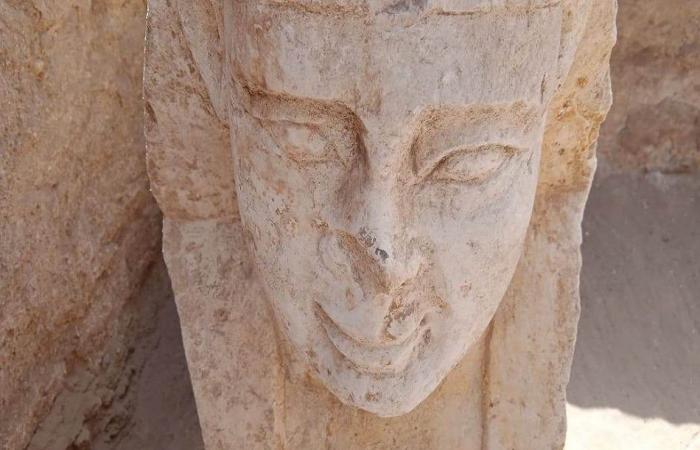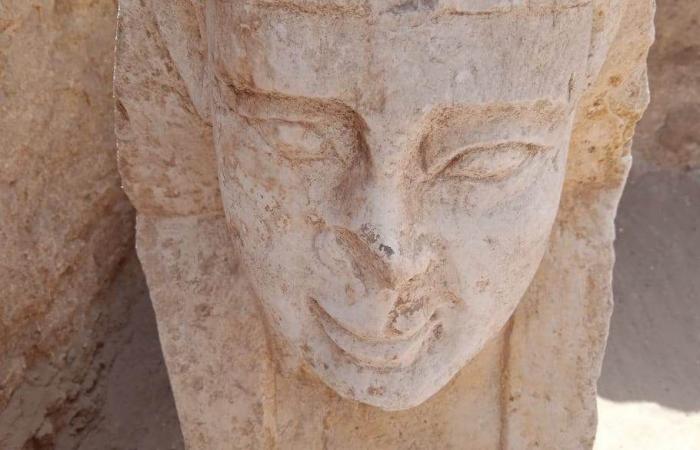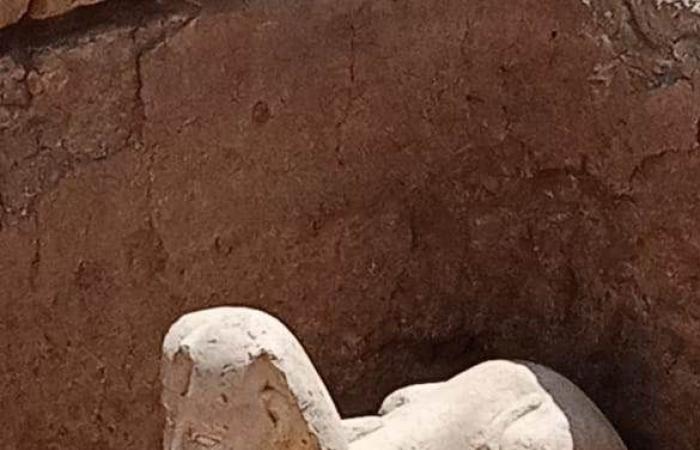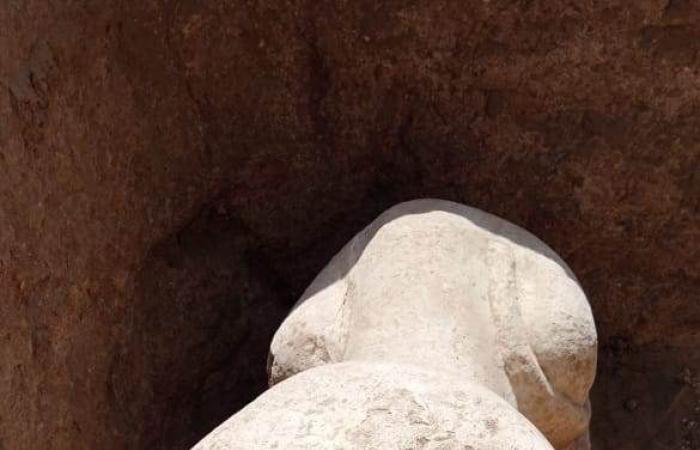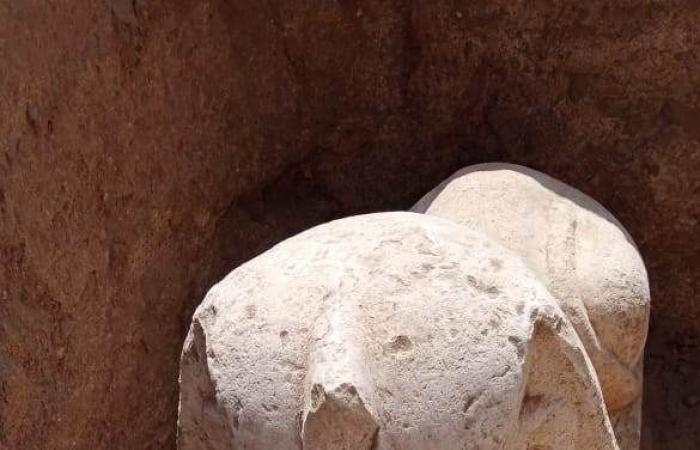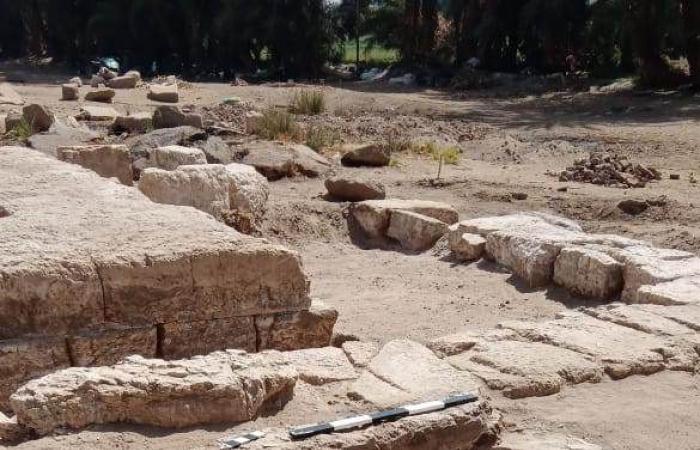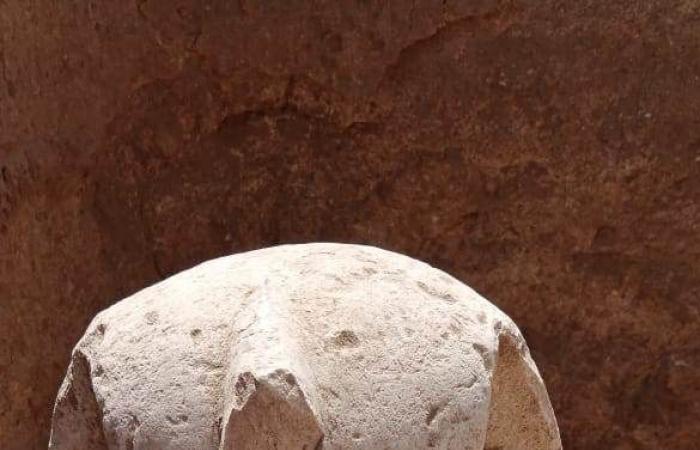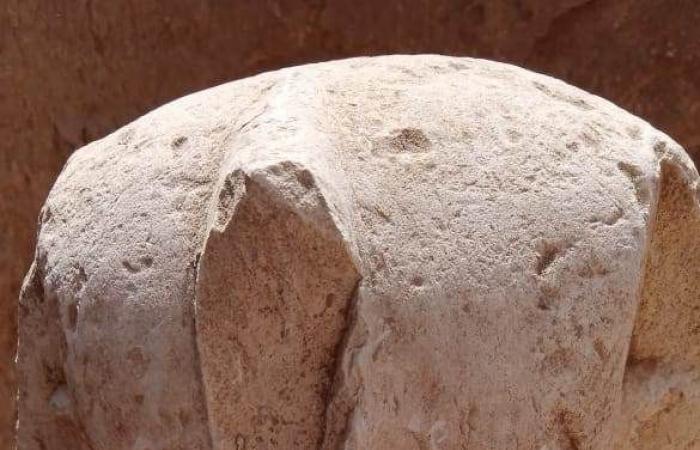Claude, as some researchers call him, or Claudius, as some call him, is no stranger to Upper Egypt. His name was inscribed in Dendera, as well as in some temples in Qeft, south of Qena.
Suggested topics
Al-Ahram Gate publishes the biography of Claudius, coinciding with the discoveries of the Egyptian archaeological mission headed by Dr. Mamdouh El-Damaty, of the Sphinx in his form.
Dr. Magdy Shaker, chief archaeologist at the Ministry of Antiquities, told Al-Ahram Gate that Claudius, whose name means “lame” in Latin, was the fourth Roman emperor who ruled for thirteen years from 41 AD to 54 AD and succeeded to power after the killing of his corrupt nephew Caligula the tyrant, and his full name is Tiberius Claudius. Nero.
He was born in Lyons (in France) in 10 B.C., and faced many hardships, as his father died when he was in his first year and he was lame and stuttering, in speech and seems to have suffered from a lack of love from his mother, the famous Antonia, who described him, according to Suetonius, as ” Beast: Man Nature has not finished but has just begun. due to Claudius’ physical disabilities
Shaker explains that Claude survived the treacherous reigns of Tiberius and Caligula, and so he was hidden from the eyes of the people in his youth and spent his time studying and writing history, and his illness was the reason for leaving him alive because he had no fear of him, but after Caligula was killed, the Roman Empire was threatened by dangers from every side. Because the imperial treasury was empty, and the Senate had decayed and weakened, and the people were in a state of revolt, and no one knew where the capable and decent ruler was who could face the problems, but it happened that the guards found Claudius, who was apparently idiot, hiding in a corner, so they called him emperor and feared the Senate Soldier strength, and perhaps this choice saved him from a situation he did not praise, and he was pleased to deal with a harmless pedantic person instead of dealing with a reckless madman who does not care about anything.
That’s why he supported the guards in his selection, and Tiberius Claudius Caesar Augustus Germanicus ascended the emperor’s throne with hesitation and fear. At the time of his choice, he was fifty years old, tall and stocky, with white hair and a jovial face, but polio and other diseases had weakened his build.
He was fond of good wine and delicious food, complained of rheumatoid arthritis, muttered little when he spoke, and when he laughed raised his voice unworthy of emperors, but he was eloquent, well versed in the “ancient” arts, religion, natural sciences, and law. Scientists and philosophers used to write to him and dedicate their writings to him
At the beginning of his rule, he released those who had previously been imprisoned under the accusation of treason, returned all the exiles to their homelands, returned the confiscated funds to their owners, and abolished the taxes that had been imposed. But he ordered the execution of the murderers of Calgiola, arguing that the greatest danger was in turning a blind eye to the murderers of the emperors. He forbade the habit of prostrating himself to the emperor, and declared openly that he did not want to take a deity to be worshipped. In addition to repairing temples, his passion for ancient antiquities prompted him to strive to resurrect the ancient religion. He sought to reform the instrument of government and law, and one of his greatest works was the conquest of Britain and its Romanization.
It is higher than the status of the liberated class, and it is forbidden to torture any of the citizens. And the conditions of the states prospered during his reign, and he punished the employees for misusing their jobs, and he made every effort to reform communications and transportation, and to protect travelers from the assault of thieves and bandits.
Magdi Shaker explains that Claudius’ reign was a pleasant departure from the more oppressive reigns of Tiberius and Caligula, both of whom were generally disliked. Claudius seems to have been popular with the people and often from the army, but he was usually at odds with the Senate. He married four times and was poisoned by his last wife at the age of sixty-three. He was succeeded by his grandson and nephew Nero.
 Claudius, the owner of the Sphinx in Qena?
Claudius, the owner of the Sphinx in Qena? Claudius, the owner of the Sphinx in Qena?
Claudius, the owner of the Sphinx in Qena? Claudius, the owner of the Sphinx in Qena?
Claudius, the owner of the Sphinx in Qena? Claudius, the owner of the Sphinx in Qena?
Claudius, the owner of the Sphinx in Qena? Claudius, the owner of the Sphinx in Qena?
Claudius, the owner of the Sphinx in Qena? Claudius, the owner of the Sphinx in Qena?
Claudius, the owner of the Sphinx in Qena?Tags: AlAraj lover antiquities . Claudius owner Sphinx statue Qena photo

